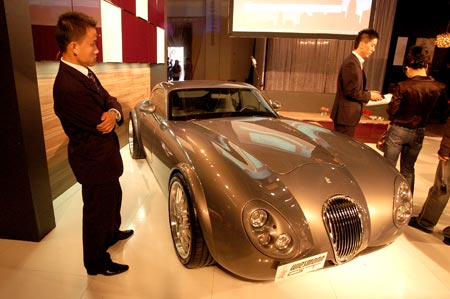
A luxury brand or prestige brand is a brand for which a majority of its products are luxury goods. It may also include certain brands whose names are associated with luxury, high price, or high quality, though few, if any, of their goods are currently considered luxury goods.
Another market characteristic of luxury goods is their very high sensitivity to economic upturns and downturns, high profit margins as well as prices, and very tightly controlled brands.
For example, following a nearly crippling attempt to widely licence their brand in the 1970s and 1980s, the Gucci brand is now largely sold in directly-owned stores. The Burberry brand is generally considered to have diluted its brand image in the UK in the early 2000s by over-licensing its brand, thus reducing its cachet as a brand whose products were consumed only by the elite.
LVMH (Louis Vuitton Moet Hennessy) is the largest luxury good producer in the world with over fifty brands, including Louis Vuitton, the brand with the world's first designer label. The LVMH group made a profit of €2bn on sales of €12bn in 2003. Other market leaders include PPR (after it purchased the Gucci Group) and Richemont.
A rather small group in comparison, the wealthy tend to be extremely influential. Once a brand gets an "endorsement" from members of this group, then the brand can be defined as a true "luxury" brand. An example of different product lines in the same brand is found in the automotive industry, with "entry-level" cars marketed to younger, less wealthy consumers, and higher-cost models for older and more wealthy consumers. The least expensive Mercedes-Benz sold in the United States is the C300 sedan at $32,000, and the most expensive model is the Mercedes-Benz SLR McLaren coupe at $497,000.
The advertising expenditure for the average luxury brand is 5-15 % of sales revenue. This rises to about 25 % with the inclusion of other communication such as public relations, events and sponsorships.[4]
No comments:
Post a Comment